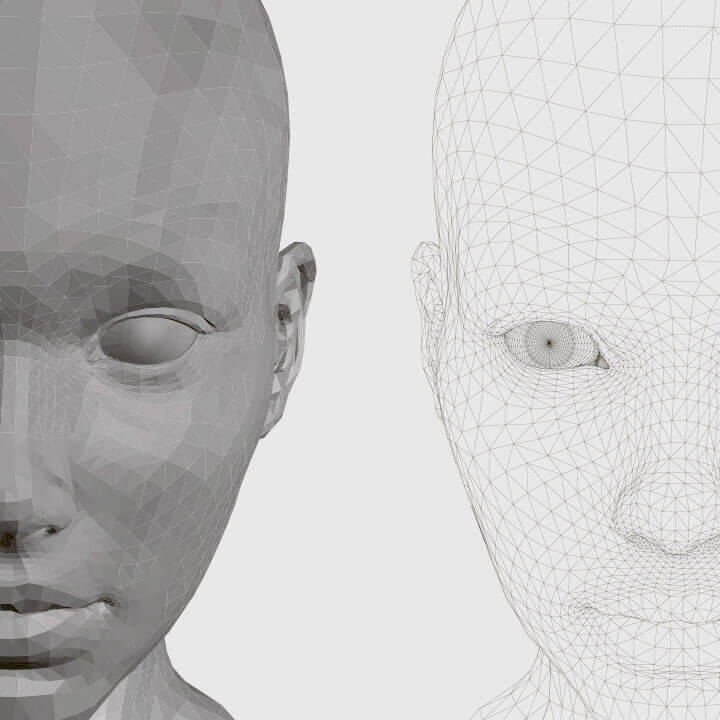In the Intelligent Devices specialization, you will learn about the design and creation of smart devices that can acquire data from their environment, process it and intervene in this environment in a controlled manner. You will study the fundamentals of physics, sensors, control theory, security, communication and how to bring intelligence to these hardware units. Intelligent devices are all around us - those who know how to design and understand them will easily find employment not only in smaller companies that develop these technologies but also in international companies of renowned names.
Information technology moves the world
-
79 %
students gain practical experience
-
98 %
students successfully pass the State Final Examination
-
99 %
graduates find work in the month
-
40 938 Kč
is the average starting salary for graduates
1st Year
Compulsory Programme Courses - Winter
Compulsory Programme Courses - Summer
Compulsory Specialization Courses - Summer
The common basis of the programme
The common core of the program consists of courses that will give you the knowledge important for all IT engineers:
- Computation Systems Architectures will teach you how to think about how your code will run on modern computing platforms, how to think about programming in a way that makes the most efficient use of resources, i.e., that your application makes the best use of the power of modern platforms, makes efficient use of system memory resources, and is also efficient in terms of energy consumed.
- Functional and Logic Programming will teach you that although classical imperative programming is a very widely used paradigm and is very close to machine-level implementation, there are other approaches that will give you a new perspective on some key problems and help you get novel and often more efficient solutions to them.
- Modern Trends in Informatics (in English) you need to know to see where the field is going and what to expect in practice in a few years.
- Parallel and Distributed Algorithms is a course that will show you the patterns, limits, and pitfalls of parallel and distributed algorithmic solutions and the associated synchronization mechanisms, without which you will hardly succeed in solving many of the more complex problems.
- Statistics and probability is the right hand of every engineer to process numerical results of experiments or data obtained while running your application, analyze them and learn from them to make further decisions is almost his daily bread.
- Theoretical Computer Science shows the limits of computer science capabilities through formal languages and mathematical models of computation. This is the only way to understand whether your problem is even solvable and, if so, with what resources and means to prove it.
- Data Storage and Preparation, especially big data, and extracting knowledge from it is a valuable art to any computer scientist. It is a key aspect that strongly influences the effectiveness of many solutions and applications.
- Artificial Intelligence and Machine Learning is a course where you will learn how to teach computers to understand our world and make them solve problems that are easy for humans but difficult for an algorithmic machine to handle.
Recommended course compositions
Intelligent devics
The graduate has general knowledge of the theory of intelligent devices and the skills of designing, constructing, and applying these devices with a special focus intelligent sensors and actuator in the context of Internet of Things.
1st year of study, winter semester
- Artificial Intelligence and Machine Learning
- Computation Systems Architectures
- Data Storage and Preparation
- Soft Computing
- Statistics and Probability
- Theoretical Computer Science
1st year of study, summer semester
- Functional and Logic Programming
- Parallel and Distributed Algorithms
- Physical Optics
- Principles and Design of IoT
- Secure Hardware Devices
- Design of Embedded Systems
2nd year of study, winter semester
- Robotics (in English)
- Semester Project
- Sensors and Measurement
- Agents and Multiagent Systems
- Intelligent Systems
- Wireless and Mobile Networks
2nd year of study, summer semester
They will pass on all their knowledge and hold you in difficult moments
Doc. Ing.
Janoušek Vladimír
Ph.D.
V. Janoušek teaches the course Intelligent Systems. He is the author of the concept of object-oriented Petri nets and PNtalk and several other tools that utilize formal models in the development of adaptive and reconfigurable systems. His hobbies include DIY realization of smart home control, HiFi audio and music.
What are we talking about?
-
(PR, Brno, April 8) The Faculty of Information Technology at Brno University of Technology (FIT BUT) hosted the international conference DFRWS EU 2025. It was the first time that this longest-running event in the field of global digital forensic research took place in the Czech Republic. …
-
She was discouraged from studying computer science, but today she is gaining success in the field of quantum circuit simulation
First place in the 8 z VUT competition, inclusion of the bachelor thesis in the programme of a prestigious international informatics conference. These are just some of the successes celebrated by Sára Jobranová, a student of the Master's programme Information Technology and Artificial Intelligence at the Faculty of Information Technology BUT. …
Come to FIT!
Other Master
Specializations
-
Application Development
-
Bioinformatics and Biocomputing
-
Computer Graphics and Interaction
-
Computer Networks
-
Computer Vision
-
Cybersecurity
-
Embedded Systems
-
High Performance Computing
-
Information Systems and Databases
-
Intelligent Devices
-
Intelligent Systems
-
Machine Learning
-
Mathematical Methods
-
Software Engineering
-
Software Verification and Testing
-
Sound, Speech and Natural Language Processing
